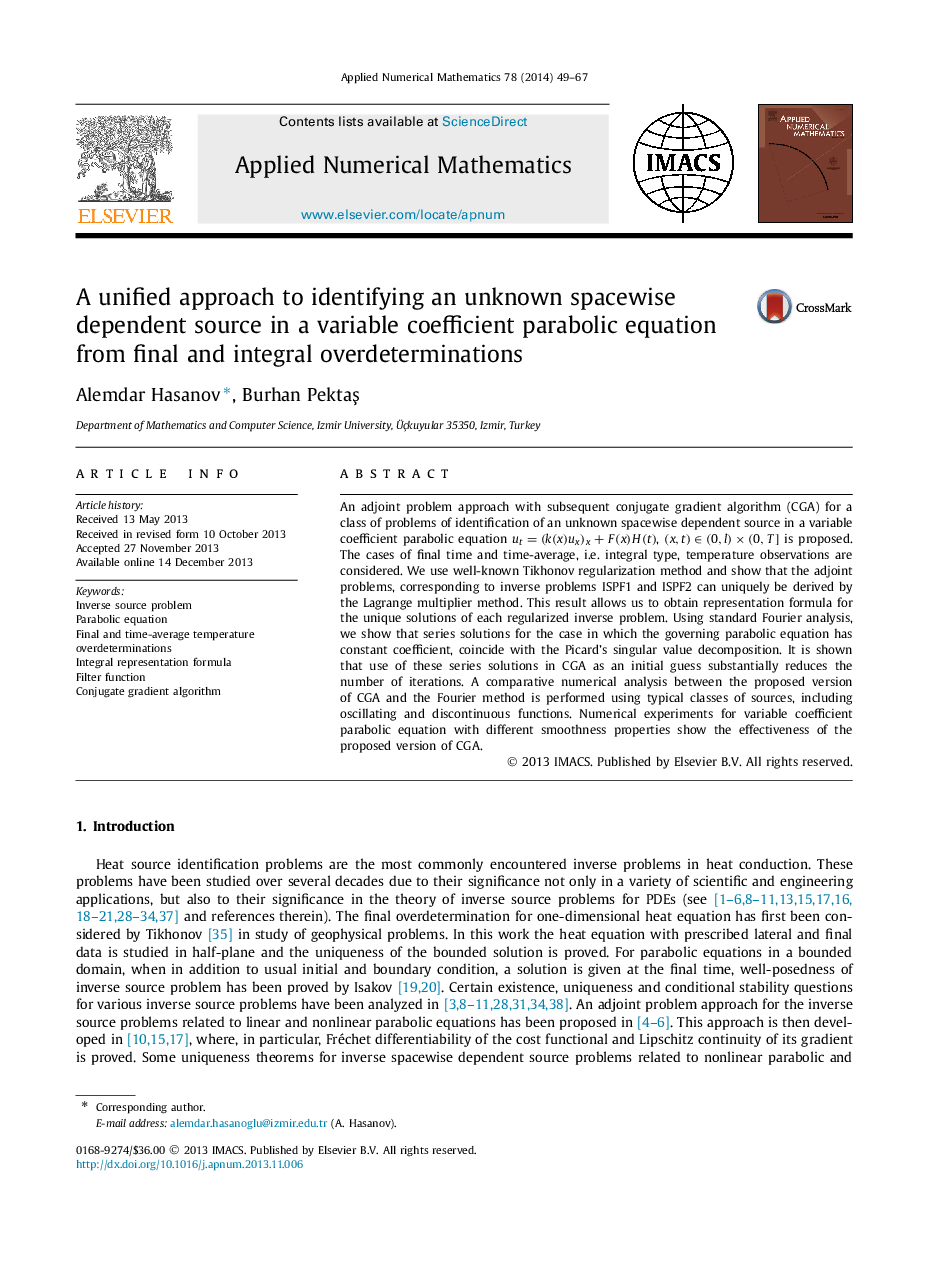| Article ID | Journal | Published Year | Pages | File Type |
|---|---|---|---|---|
| 4645198 | Applied Numerical Mathematics | 2014 | 19 Pages |
•New integral representation formula for the solutions of inverse source problems is proposed.•It is shown that the Picardʼs representation formula is a partial case of this formula.•A new version of Conjugate Gradient Algorithm with optimal initial guess is proposed.
An adjoint problem approach with subsequent conjugate gradient algorithm (CGA) for a class of problems of identification of an unknown spacewise dependent source in a variable coefficient parabolic equation ut=(k(x)ux)x+F(x)H(t)ut=(k(x)ux)x+F(x)H(t), (x,t)∈(0,l)×(0,T](x,t)∈(0,l)×(0,T] is proposed. The cases of final time and time-average, i.e. integral type, temperature observations are considered. We use well-known Tikhonov regularization method and show that the adjoint problems, corresponding to inverse problems ISPF1 and ISPF2 can uniquely be derived by the Lagrange multiplier method. This result allows us to obtain representation formula for the unique solutions of each regularized inverse problem. Using standard Fourier analysis, we show that series solutions for the case in which the governing parabolic equation has constant coefficient, coincide with the Picardʼs singular value decomposition. It is shown that use of these series solutions in CGA as an initial guess substantially reduces the number of iterations. A comparative numerical analysis between the proposed version of CGA and the Fourier method is performed using typical classes of sources, including oscillating and discontinuous functions. Numerical experiments for variable coefficient parabolic equation with different smoothness properties show the effectiveness of the proposed version of CGA.
